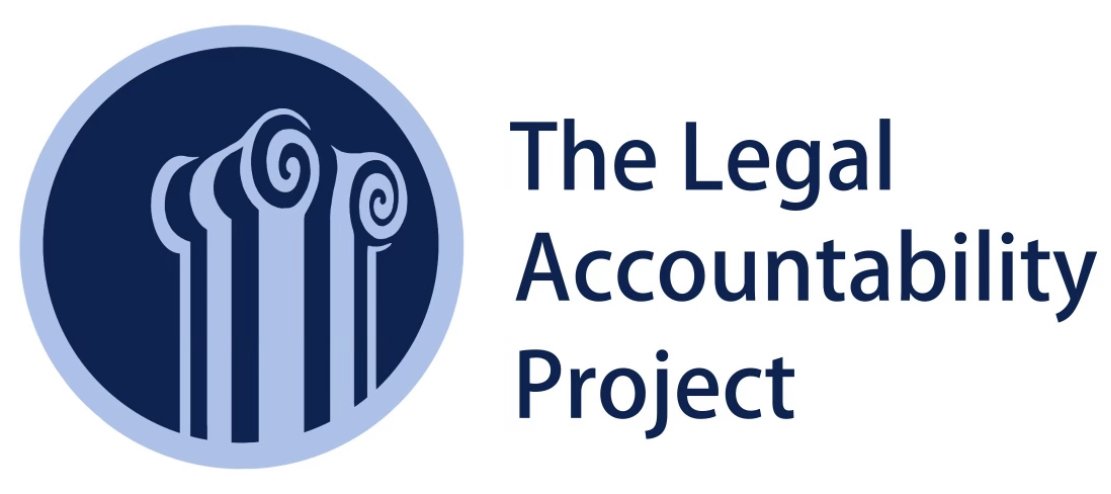The Legal Accountability Project Celebrates Our Third Anniversary
Monday, June 2, 2025
For Immediate Release
Contact: Aliza Shatzman, 267-481-2095, aliza.shatzman@legalaccountabilityproject.org
The Legal Accountability Project Celebrates Our Third Anniversary
Three years ago this week, we launched The Legal Accountability Project (LAP) to advance audacious ideas: nationwide clerkship transparency and real judicial accountability. LAP’s President and Founder, Aliza Shatzman, didn’t sit around complaining about her circumstances, nor wait around for someone else to create the change she wished to see. Instead, she built it herself.
Many thought it couldn’t be done. A few thought it shouldn’t be done. Longtime followers know the rest of the story.
Over the past three years, LAP has blown the doors off the clerkship system and upended the federal judiciary–creating real, lasting, meaningful change for tens of thousands of federal and state judiciary employees, law students, lawyers, the legal industry, and society generally.
LAP is the positive change in the judiciary since the MeToo movement more than 7 years ago. Law clerks, law students, and practicing attorneys reach out at least weekly to share how LAP’s work has made a meaningful difference in their lives.
As LAP celebrates our third birthday, here are just a few of LAP’s many accomplishments over the past 36 months:
LAP’s Clerkships Database (AKA “Glassdoor for Judges”), a first-of-its-kind rate-my-judge platform, amassed over 1,600 candid post-clerkship surveys about more than 1,000 federal and state judges nationwide. Over the past 13 months, LAP’s Database has already served over 2,000 law students and recent graduates nationwide from nearly every U.S. law school. LAP has also welcomed 2 law school subscribers, 6 law review subscribers, and, thanks to generous donations from 8 alumni, we’ve offered free Database access to hundreds of law students from Harvard, Yale, UChicago, NYU, Columbia, Vanderbilt, Rutgers, and Houston Law.
LAP assisted with the introduction or reintroduction of 2 pieces of legislation, the Judiciary Accountability Act (JAA), which would finally extend federal anti-discrimination protections to over 30,000 exempt judicial branch employees; and the TRUST Act, which would close the loophole in the federal judicial complaint process that currently allows judges to step down to evade accountability for misconduct.
LAP participated in more than 50 informative and empowering judicial clerkship programs at top law schools nationwide as part of our “law school roadshow” in collaboration with student organizations, often moderated by deans, law professors, or judges, to educate students about our work and empower them to make informed career decisions, inspiring students as we go!
We’ve published nearly 70 articles in mainstream publications and law journals; appeared on more than 90 podcasts; and been quoted in more than 50 news stories; because spreading the word about our work to inform our stakeholders and the public is almost as important as doing the work.
We’ve received several awards for LAP’s pathbreaking work, including Above the Law’s Lawyer of the Year, 2 awards at the American Legal Technology Awards, the Ms. JD Limitless Leadership Award, and the NYC Bar Association Office for Diversity, Equity, Inclusion and Belonging Firestarter Award.
While the barriers to fixing the federal judiciary are much greater–requiring policy and legislative change and other longer-term solutions—LAP has forced the judiciary to sit up, take notice, and make changes. We hold their feet to the fire every single day, and we’re not letting up. For example, the federal judiciary has released several reports about workplace conduct recently. They never would have taken even these modest transparency steps just three years ago without an outside organization holding them publicly to account.
And, we’ve supported countless mistreated clerks, because we must use the systems we have, in order to improve them. Aliza conceptualized LAP as the resource she wishes existed as both a law student applying for clerkships, and as a mistreated clerk seeking support and resources. She remembers how isolating it felt when she’d just been fired and retaliated against. Now every mistreated clerk knows they are not alone.
At a time when news from Washington, D.C. is bleak, and many ask what they can do to help preserve and protect our democracy, LAP is a “right now” solution. We’re not waiting on anyone–neither the courts nor Congress–to make the change we know is urgently necessary.


